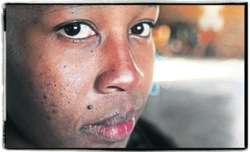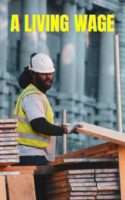Profile: Koketso Moeti
Content Partner: Activate! Leadership for Public Innovation
This article was originally published in the Sunday Times, 10 June 2012. It has been reproduced with permission.
I was two years old when the Berlin Wall came down. I have never been to Germany, but I understand that, after reunification, that country experienced many of the same stresses that we South Africans face today. People from the East and West who had been torn apart had to grow together again. But they did, and apart from extremist groups, all Germans now see themselves as part of one nation.
Here, talking about our separateness has become an art-form in itself. We spend more time critiquing the walls that divide us than trying to overcome them. We have become paralysed by an acknowledgement of deep-seated cultural and economic differences, yet often fail to recognise the obvious opportunities to connect to each other.
Just think of how mobile phones have improved communication and opened up new possibilities over the past decade. It’s an opportunity literally in our hands. But we’ve failed to grasp it to the full. Other countries have used mobile phones to link opportunity seekers to jobs, finances and further education. Here, cellphone providers penalise those who can only afford basic cellphones by charging higher rates for simpler technologies – like USSD – while the actual operating costs are next to nothing. I keep wondering whether big business is really serious about reuniting our country. I would like to take the CEO’s of Vodacom, MTN and Cell C with me to Rooigrond where I live, so they can understand the power that they have to change the lives of young people.
It is easy to miss Rooigrond – just another group of shacks dotted along the potholed road to Mahikeng in the North West. The electric fence of the prison on the other side of the road is more likely to catch your eye, or maybe you will notice the trucks and bulldozers digging up red earth as they build a new psychiatric hospital. From the road, Rooigrond looks like just another poor shack land. But if you take the time to stop and talk to us, you’ll discover that Rooigrond is a place of hope against the odds. The odds are huge. For example, the prison has an irrigated soccer field for its inmates but our only running water is an excess run-off pipe from the prison which flows once a week. The walls of the new hospital grow higher every day but the only brick structure we have is an early learning centre that we ourselves built for our children.
Rooigrond was established in the early 1990s. At that time, the municipality gave its permission for people to move onto the land, but since 2006 we have been threatened with eviction for illegal occupation. Although no formal eviction order has been issued, the state of uncertainty has given the municipality a convenient excuse for not providing services to us. We don’t have a proper toilet system and half the households have no electricity. I grew up frustrated by the fact that we were constantly left out of decisions affecting our lives. I became angry and cynical about so-called ‘development plans’. I was determined that one day I would find a way for the voice of my community to be heard.
Two years ago I was helping to run a children’s feeding scheme when the community’s two water pumps broke down. The village was distraught. There was no water to drink, wash or cook. Over 400 children showed up that day desperate for food, but we had no water for cooking; not even for a bit of pap. Looking those hungry children in the eye killed part of my soul. I felt so stuck. But I knew that we had to find a way to solve the problem. So I decided to contact everyone I knew in the surrounding area, hoping that somebody would be able to help us. Our ‘SOS’ call worked – a nearby property owner brought in some water and we managed to feed the children. A light went on in my brain that day: if we could connect people both inside and outside our community, we would have the power to solve many of our problems.
I had founded a project – Operation: ROOIGROND – early in 2010, but now I was ready to kick it into top gear. Word-of-mouth brought in the first equipment for our early learning centre. But I wanted a wider audience. So I started to use the internet and social media to tell the story of my community. The trouble was that I had to travel to Mahikeng to find an internet café. That all changed when I was given a sponsored Blackberry. Suddenly I could surf relevant websites and I began tweeting about our projects and situation. There was so much information out there that I had never known existed; so many platforms I could use to tell our story.
I couldn’t believe it when people started to respond! They asked questions, and suggested articles to read. When I first tweeted our need for magazines or the legal difficulties we confronted in our quest for service delivery, I didn’t realize that I was beginning to turn my wish list into reality. Now, a constitutional law expert is assisting us to access water and sanitation. A Cape Town-based activist is helping to get the early learning centre registered for funding. An agricultural specialist has designed a farming plan, and a young social entrepreneur is working with us to find ways for women to manage the challenges associated with menstruation, such as the lack of sanitary pads which keeps school girls at home every month.
Rooigrond used to feel so isolated – just another poor community in a poor province in an unequal country. But from the keypad of my mobile phone we now feel part of the nation. I still wake up some days and can’t believe that there is a whole network of people who are concerned about Rooigrond and committed to improving our lives. Even the elders in my community have started to tweet, now that they’ve seen what the world of mobile technology can do! We are still a community facing extreme poverty, but now we feel like we have some control. Facebook, Twitter, LinkedIn and Google Plus tend to be regarded as useful tools for those with money and education. But South Africa has among the highest cellphone penetration in the world, and mobile technology could bring down many of the walls that still separate young people and poor communities from real opportunity.
For example, in India, a cellphone-based project called Babajob links about 8 000 work seekers to employment every day. The driving force at Babajob is the idea that if you give people access to information, people will take advantage of it to make better decisions which will, over time, lead to higher incomes. In the blue-collar and informal markets, one of the main challenges is that information about jobs is largely not digital and not accessible. By digitizing information, and because telecommunications costs are so low in India, Babajob has connected work seekers in the poorest communities to over one million jobs.
The difference is that in India, the low-end USSD is free and normal cellphone costs are just 1 rupee (15c) per minute to phone anywhere in the country. India knows that access to information and connections between communities is what will drives economic development in their country. Contrast that to South Africa, where out of 46 African countries surveyed in 2012, South Africa ranked thirtieth in terms of mobile communication costs. In fact the cheapest prepaid products in SA are three times more expensive than our neighbours in Namibia!
Of course, cynics might say that reducing the cost of communication won’t dramatically change lives because opportunities are limited and many young people are unprepared for work. I say it is exactly that sort of ‘them and us’ mentality that continues to polarise our country. If young people could just see a little further over the horizon, it would give them a sense of hope and imminent possibility. If we feel connected to something bigger than ourselves, we have more incentive to study harder and keep away from harm.
There are many walls that obstruct the view of poor communities in South Africa. Poorly run municipalities, top-down development plans, endemic unemployment and social isolation are but a few of them. Many of the walls are legacies of apartheid. Ironically, some are the makings of a post-apartheid South Africa. High mobile phone costs are one of the latter. Access to mobile technology has transformed my sense of what is possible and it is changing the reality of my community. I want all young people who still feel shut out of the benefits of democracy to experience what I do.
Follow on twitter: @ORooigrond
Visit: www.operationrooigrond.co.za
***
Activate! Leadership for Public Innovation is a national network of young people committed to social transformation. United across race and class, they will develop the perspectives and skills of innovation needed to tackle some of South Africa’s most challenging social issues.
To find out more, contact Activate! on: info@activateleadership.co.za or www.activateleadership.co.za
***
FunDza is very proud to announce that Operation: ROOIGROND has registered to participate in its Popularising Reading programme.





